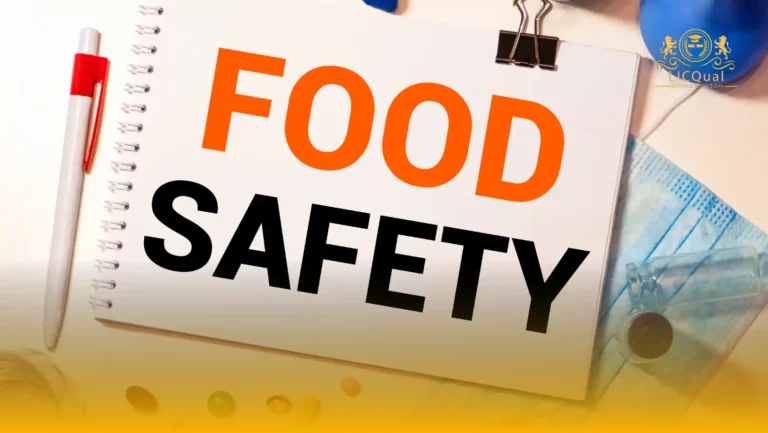The LICQual UK Level 6 Diploma in Oil and Shipping Operations is a UK‑accredited qualification designed for professionals who want to advance into senior roles within the global oil transport, shipping, and maritime logistics industry. Building on the knowledge gained at Level 5 or through relevant work experience, this advanced diploma equips learners with the strategic, legal, and financial expertise required to manage complex oil shipping operations and international energy logistics.
Oil and shipping operations are central to the global economy, powering industries and connecting markets across continents. This Level 6 Diploma in Oil and Shipping Operations UK provides learners with advanced insights into tanker management, global energy supply chains, maritime law, and regulatory compliance. By combining academic theory with practical applications, the program ensures graduates are prepared to meet the challenges of today’s fast‑changing oil and maritime sector.
The UK‑accredited Oil and Shipping Operations Diploma Level 6 is internationally recognized, making it ideal for professionals seeking credibility and career progression in oil transport companies, shipping firms, port authorities, and global logistics providers. Learners will explore advanced topics such as risk management, sustainability, financial planning, and digital transformation in oil shipping. This ensures they gain not only technical expertise but also the leadership and decision‑making skills needed for senior management roles.
The international diploma in Oil and Shipping Operations (Level 6) also emphasizes innovation and sustainability, preparing learners to adapt to emerging trends such as green shipping, smart ports, and digital supply chains. With a strong focus on employability, the course develops critical thinking, problem‑solving, and research skills that align with international standards and industry expectations.
Whether your goal is to become a senior oil shipping manager, logistics strategist, or maritime compliance expert, the LICQual UK Level 6 Diploma in Oil and Shipping Operations provides the advanced knowledge, global recognition, and professional edge required to succeed in today’s competitive energy and shipping industry.
Course Overview
Qualification Title
LICQual UK Level 6 Diploma in Oil and Shipping Operations
Total Units
6
Total Credits
120
GLH
480
Qualification #
LICQ2201296
Qualification Specification
To enroll in the LICQual UK Level 6 Diploma in Oil and Shipping Operations, applicants must meet the following criteria:
|
Qualification# |
Unit Title |
Credits |
GLH |
|---|---|---|---|
|
LICQ2201296-1 |
Advanced Oil and Shipping Operations Management |
20 |
80 |
|
LICQ2201296-2 |
Global Energy Logistics, Supply Chains, and Trade Policy |
20 |
80 |
|
LICQ2201296-3 |
Maritime Law, Risk, and Regulatory Compliance in Oil Shipping |
20 |
80 |
|
LICQ2201296-4 |
Financial and Commercial Management in Oil and Shipping |
20 |
80 |
|
LICQ2201296-5 |
Sustainability, Innovation, and Digital Transformation in Oil Transport |
20 |
80 |
|
LICQ2201296-6 |
Research Project in Oil and Shipping Operations |
20 |
80 |
By the end of this course, learners will be able to:
1. Advanced Oil and Shipping Operations Management
Learners will be able to:
- Critically evaluate advanced principles of oil shipping operations and management.
- Apply strategic planning techniques to optimize tanker performance and fleet efficiency.
- Demonstrate the ability to manage large‑scale oil shipping operations in global contexts.
- Analyze the impact of international trade trends on oil transport and shipping logistics.
- Formulate strategies for effective crew management, safety, and operational excellence.
- Assess the role of digital tools and analytics in modern oil shipping management.
2. Global Energy Logistics, Supply Chains, and Trade Policy
Learners will be able to:
- Demonstrate advanced knowledge of global energy logistics and supply chain integration.
- Critically evaluate the role of oil shipping in international trade and energy policy.
- Apply logistics strategies to enhance efficiency in global oil supply chains.
- Analyze the impact of trade agreements, tariffs, and policies on oil shipping operations.
- Formulate solutions for overcoming challenges in cross‑border oil logistics.
- Assess the role of innovation and technology in shaping global energy logistics.
3. Maritime Law, Risk, and Regulatory Compliance in Oil Shipping
Learners will be able to:
- Demonstrate in‑depth understanding of international maritime law and conventions.
- Critically evaluate compliance requirements under IMO, SOLAS, MARPOL, and ISM Code.
- Apply legal frameworks to manage risks in oil shipping and logistics operations.
- Analyze case studies involving liabilities, disputes, and regulatory breaches.
- Formulate strategies for mitigating legal and operational risks in oil transport.
- Assess the role of compliance in ensuring sustainable and ethical oil shipping practices.
4. Financial and Commercial Management in Oil and Shipping
Learners will be able to:
- Demonstrate advanced knowledge of financial principles in oil shipping and logistics.
- Apply cost analysis, budgeting, and forecasting techniques to maritime operations.
- Critically evaluate investment decisions in fleet acquisition and oil logistics infrastructure.
- Analyze the impact of global economic trends on oil shipping finance and profitability.
- Formulate strategies for financial risk management in oil and maritime businesses.
- Assess the role of financial planning in achieving sustainable growth in oil logistics.
5. Sustainability, Innovation, and Digital Transformation in Oil Transport
Learners will be able to:
- Demonstrate understanding of sustainability principles in oil shipping and logistics.
- Critically evaluate the role of green shipping practices in reducing environmental impact.
- Apply knowledge of digital technologies such as blockchain, AI, and IoT in oil transport.
- Analyze the impact of innovation on supply chain efficiency and competitiveness.
- Formulate strategies for integrating sustainability and digitalization in oil shipping.
- Assess the role of international regulations in driving sustainable oil transport practices.
6. Research Project in Oil and Shipping Operations
Learners will be able to:
- Design and conduct independent research on advanced topics in oil shipping and logistics.
- Apply appropriate research methodologies and data analysis techniques.
- Critically evaluate academic and industry sources to support evidence‑based findings.
- Demonstrate the ability to present complex arguments in a structured research report.
- Formulate practical recommendations for addressing real‑world challenges in oil shipping.
- Showcase advanced critical thinking, problem‑solving, and academic writing skills aligned with international standards.
The LICQual UK Level 6 Diploma in Oil and Shipping Operations is designed for professionals aiming to progress into senior roles in oil transport, maritime logistics, and global energy management. This UK‑accredited qualification is ideal for individuals with prior study or work experience who want to strengthen their expertise in advanced oil shipping operations, global supply chains, maritime law, and strategic logistics. It provides the leadership, analytical, and compliance skills required to succeed in today’s competitive international energy and shipping industry.
1. Senior Oil and Shipping Professionals
- Managers in oil shipping companies seeking advanced leadership skills.
- Professionals overseeing tanker operations, routing, and cargo management.
- Individuals responsible for compliance with international maritime regulations.
- Staff aiming to progress into director‑level or senior management positions.
- Leaders preparing to manage large‑scale global oil logistics networks.
2. Maritime Law and Compliance Specialists
- Legal advisors focusing on oil shipping law, contracts, and dispute resolution.
- Compliance officers ensuring adherence to IMO, SOLAS, and MARPOL standards.
- Professionals handling risk management and regulatory frameworks.
- Consultants advising oil shipping firms on international trade compliance.
- Practitioners aiming to expand expertise in arbitration and maritime disputes.
3. Global Energy Logistics and Supply Chain Managers
- Professionals managing international oil supply chains and trade routes.
- Logistics specialists seeking advanced knowledge of global energy policy.
- Managers responsible for optimizing shipping and port operations.
- Individuals aiming to integrate sustainability into oil logistics strategies.
- Leaders preparing for roles in multinational energy logistics organizations.
4. Marine Insurance and Risk Management Experts
- Insurance professionals covering marine cargo and tanker liabilities.
- Risk managers seeking advanced strategies for oil shipping operations.
- Specialists handling claims for loss, damage, or delay of oil cargo.
- Professionals advising on insurance policies and compliance frameworks.
- Individuals aiming to strengthen expertise in global risk management.
5. Port and Terminal Operations Leaders
- Senior staff managing oil port logistics, cargo flows, and supply chain hubs.
- Professionals responsible for port compliance and operational efficiency.
- Managers aiming to integrate digital transformation in port operations.
- Leaders preparing to oversee large‑scale terminal and tanker coordination.
- Individuals seeking advanced knowledge of port economics and trade policy.
6. Entrepreneurs and Business Owners in Oil and Trade
- Owners of oil shipping, freight forwarding, or logistics businesses.
- Entrepreneurs expanding into international oil trade and maritime logistics.
- Business leaders aiming to reduce risks in oil shipping contracts.
- Individuals seeking to understand financial management in oil shipping.
- Owners preparing to scale operations into global maritime markets.
Assessment and Verification
All units within this qualification are subject to internal assessment by the approved centre and external verification by LICQual. The qualification follows a criterion-referenced assessment approach, ensuring that learners meet all specified learning outcomes.
To achieve a ‘Pass’ in any unit, learners must provide valid, sufficient, and authentic evidence demonstrating their attainment of all learning outcomes and compliance with the prescribed assessment criteria. The Assessor is responsible for evaluating the evidence and determining whether the learner has successfully met the required standards.
Assessors must maintain a clear and comprehensive audit trail, documenting the basis for their assessment decisions to ensure transparency, consistency, and compliance with quality assurance requirements.







